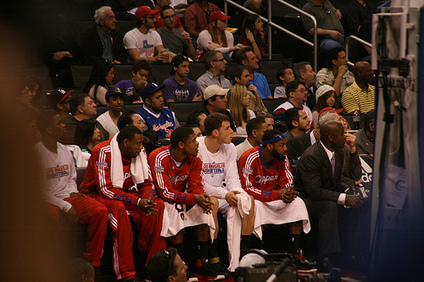Expressing gratitude for the conversations that have come out of this mediastorm
How many conversations have you had about the Clippers since last Saturday? Whether it’s one or seventeen, it’s likely it’s one or seventeen more conversations than you or the average sports fan has had about race, or privacy, or government regulation (or the Clippers, for that matter), in the past month.
What good comes out of this incident—a powerful cultural figure exposed on tape making racist remarks?
Great conversation about race.
If you didn’t know: Clippers owner Donald Sterling got banned from the NBA for life, fined $2.5 million, and will likely be coerced into selling his team—though there’s debate about that. There isn’t much question around what happened: the organization released a statement saying it believes Sterling’s girlfriend V. Stiviano (who identifies as Black-Mexican) gave an audio recording of Sterling asking her not to associate with black people at Clippers games to media outlet TMZ. Sterling has confirmed it is him on the tape, but released statements saying the tape doesn’t accurately represent his feelings.
Ultimately, Sterling’s disturbing remarks got us talking. Sometimes in a reasonable, logical way, sometimes in an outraged, upset way, but talking is something our country doesn’t do well when it comes to race. The NBA is 75% black; the U.S. is not. Race is a part of our cultural dialogue, but under the guise of correctness it is too often avoided as a topic of conversation.
But how can we address racism and the problems and opportunities of a cultural melting pot like America without talking about it?
Likewise, Sterling got us talking about privacy. In the wake of national outrage over the NSA, should we be more outraged that the private conversation was released to the public? Is the NBA setting a dangerous censoring precedent? Free speech is protected by the first amendment, but the NBA, while public-facing, is a private company.
Teams uniting in solidarity. Players uniting. Conversations, facebook comments, water cooler talk—it all adds up to talking about issues. And that’s the first step to cultural change: acknowledgement.
Without condoning the way it happened, we’re grateful that there’s a national, cultural dialogue opening up right now. Let’s keep the conversation going.

